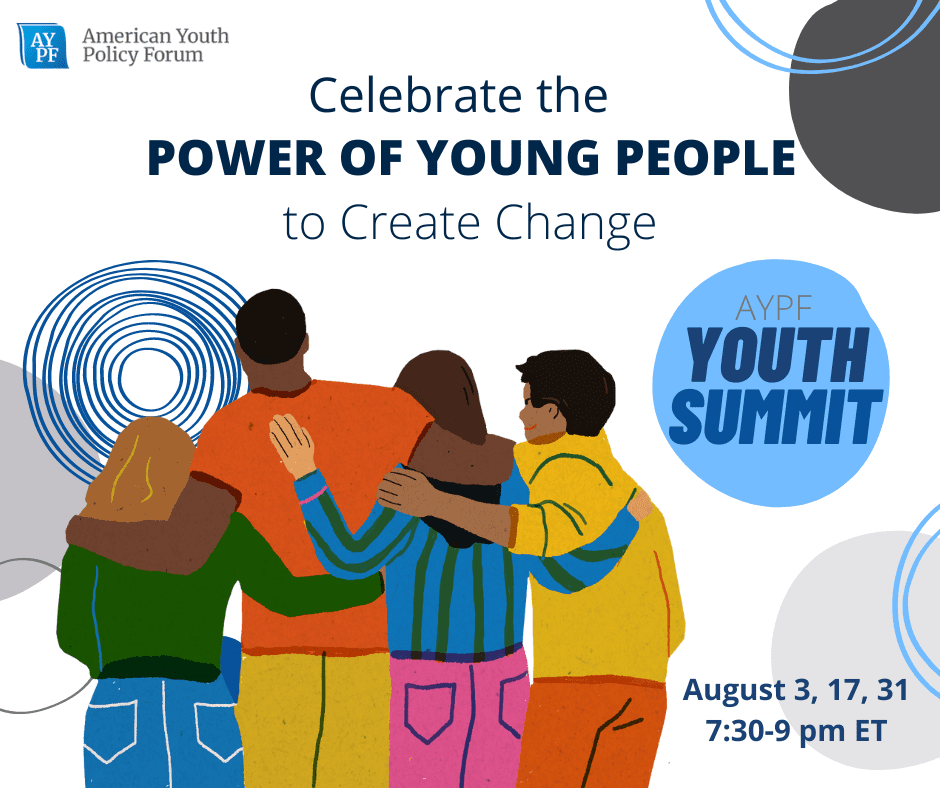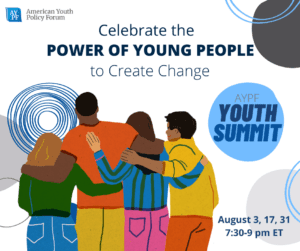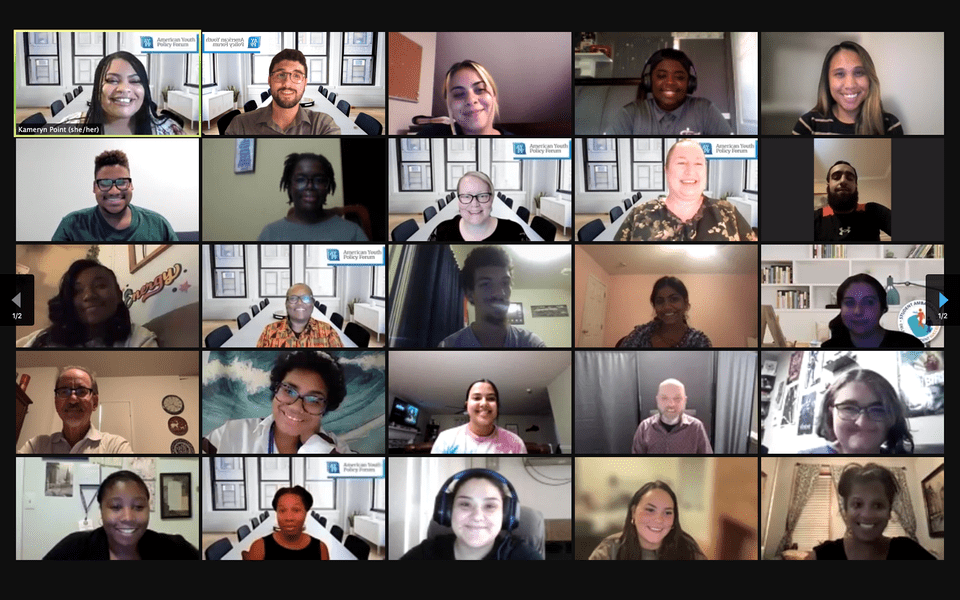Recording of the event: https://youtu.be/L0gxexZapag
Event Summary
On August 31, 2022, the American Youth Policy Forum hosted our third and final session of the Youth Summit, a series of discussions focused on policies of utmost importance as identified by our Youth Policy Consultants. As the pandemic continues, students are facing new and more complex obstacles to success. AYPF’s Youth Summit allowed young people to connect with one another to discuss solutions to problems plaguing their communities.
During the third session, speakers shared their insights about solutions and policy reforms to expand opportunities for young people to obtain meaningful employment. Following the panel discussion, youth participants joined breakout groups to share their own ideas.
Speakers
- Jo Ann Paanio is the Director of Advocacy at the Forum for Youth Investment. She has cultivated her career in social justice and advocacy to increase opportunities for individuals and families. At the Summit, she shared about her experience with the federal policymaking process related to youth workforce issues.
Jo Ann discussed legislation passed and signed into law during the current Congressional session along with bills introduced and still under consideration in the U.S. House and Senate. She spoke about the 2022 Inflation Reduction Act that was signed into law by President Biden, which includes a $3 billion grant that can be flexibly used by communities to address climate justice and expand green jobs for young people. She also explained how recovery funds from the 2021 American Rescue Plan could be used to address housing, nutrition, childcare etc. as well as to build youth employment opportunities.
She shared that a big problem is federally funded programs that reconnect youth aren’t reaching the young people their designed for because the information about them isn’t very easily accessible. She suggested more awareness about these employment opportunities could be spread among young people through social media like TikTok.
Jo Ann noted that, as the federal government continues to look at ways to connect young people to education and employment opportunities, young people’s voices, experiences, and expertise should be heard “loud and clear” by policymakers to ensure those are the policies that create the change young people need to thrive.
- Tyree Crawford is an iFoster TAY member who serves as a peer mentor to foster youth.
He shared that his own experience in the foster care system inspired him to now work with other foster youth so he can connect them with resources that he didn’t know about himself when he was in the system. An iFoster mentor can be a great tool to connect young people to what they need.
He said, for example, many young people struggle to obtain employment because they must go to school, so iFoster can connect them to their school’s work study programs. He highlighted that not everyone has a phone, phone service, or internet to see who is hiring and to apply, which can be a huge barrier to employment – which is something iFoster helps with as well.
When it comes to making change, Tyree emphasized the importance of youths’ lived expertise: “You know what you struggle with most. The people who are in Congress they know based off statistics. You know based off of your everyday life.”
Tyree advised young people to build their social networks and connect with many different people, which has proven vital to his success.
- Armonté Butler is a public health graduate student and an AYPF Youth Policy Consultant who works at a national sexual health nonprofit organization. He shared that he wanted to get into advocacy work on issues related to LGBTQ health, rights, and sex education because sex education was not inclusive in his schools. In his role, he supports other young people who want to do the same work and helps instill advocacy skills to ensure they have the tools to achieve what they want.
Armonté discussed that the pandemic has affected youth employment by worsening young people’s mental health. He acknowledged that safe spaces where young people could apply for jobs such as schools and libraries were closed. This left many young people, who needed someone to help with their resumes and cover letters or needed access to computers, without many options.
He expressed that local, state, and national advocacy organizations should continue to provide people with resources such as text alerts and toolkits that are written in language accessible to the public so that communities can better understand the availability and impact of federal funds and legislation.
Armonté also encouraged young people who want to work for change to research and connect with nonprofit organizations, whether on the national scale like AYPF or on local and state levels, that are already doing work they are passionate about and whose values align with their own.
Youth Discussions
The breakout room discussions focused on the barriers young people face when trying to obtain employment and what is needed to dismantle those barriers and expand career opportunities for young people.
Issue areas where participants expressed the most interest:
- Schools need to provide better career preparation to help young people expand their ideas and understanding of all the possible options.
- Career counseling should include the opportunity for young people to “try out” different career paths to find what fits them and their interests and skills the best.
- Making all juvenile records confidential would prevent them becoming hurdles to employment down the road.
- Young people need help with housing, childcare, transportation, and mental health supports to obtain and maintain employment.
- Targeted funding should be made available for more near-peer mentoring programs (like credible messengers), which provide meaningful employment for young adults and vital connections for youth.
Thank you to everyone who participated in our final session of the Youth Summit and be sure to check out our upcoming events!




